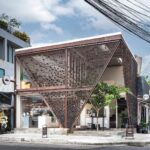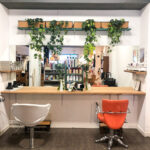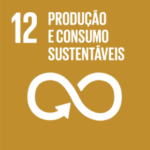
Gal. The vegan croissant café also fights waste
A vegan, specialty coffee shop that fights food waste every day, has opened in Anjos, Lisbon. Welcome to Gal. The team at Too Good to
We didn't find any happenings mapped to your criteria.
Try the traditional search to find articles not yet mapped with RUA.
We didn't find any happenings mapped to your criteria.
Try the traditional search to find articles not yet mapped with RUA.
We didn't find any happenings mapped to your criteria.
Try the traditional search to find articles not yet mapped with RUA.
We didn't find any happenings mapped to your criteria.
Try the traditional search to find articles not yet mapped with RUA.
The project will begin in 15 municipalities, where around 200 collection points will be set up, with the aim of expanding the collection and recycling system to a further 20 municipalities by the end of 2025.
The Coffee Industrial and Commercial Association (AICC) and six of its member companies have launched the Society for the Collection and Recycling of Coffee Capsules (RECAPS) with the aim of involving the community in the collection and recycling of coffee capsules. The initiative starts with 15 municipalities where around 200 collection points, or “capsules”, will be set up.
Developed over five years, the project marks “the beginning of another ritual: bringing recycling to the doorstep (to the municipality) of all coffee capsule consumers in Portugal”, reads the press release.
RECAPS brings together brands such as Bellissimo, Delta Q and Ginga by Delta Cafés, Torrié by José Maria Vieira, Chave D’Ouro, Nicola and Segafredo by Massimo Zanetti, Buondi, Nescafé Dolce Gusto, Nespresso, Sical and Starbucks by Nestlé Portugal, Bogani by NewCoffee and UCC by UCC Coffee.
The “capsulons” are distributed among the municipalities of Almada, Aveiro, Braga, Cascais, Cantanhede, Condeixa, Famalicão, Guimarães, Lisbon, Mafra, Moita, Montemor-o-Novo, Oeiras, Proença-a-Nova and Seixal, but the aim is to extend the system to 20 more municipalities by the end of 2025.
“With its unwavering commitment to contributing to sustainable development goals, RECAPS (…) represents the culmination of years of effort and collaboration between the country’s leading coffee companies. We are committed to bringing capsule recycling to all consumers and thereby contributing to reducing waste and improving recycling targets at national level,” said Cláudia Pimentel, Secretary General of the AICC and spokesperson for RECAPS, in statements to Lusa.
The process is based on “a model very similar to traditional recycling bins, where success depends on joint collaboration between consumers, who are now challenged to deposit used coffee capsules at collection points known as ecocenters or ‘capsulons’ installed by local authorities; the municipalities, which ensure that the capsules are made available and placed at collection points so that they can be sent for treatment; and the recycling companies, which ensure that the capsules are collected and sent to specialized recycling facilities, where the plastic, aluminium and coffee grounds are separated and recycled,” he explained.
Collection is carried out individually by each municipality through the various collection pointsThe new collection points are defined by the municipality in order to “take advantage of the location of existing ecopoints (mobile or fixed), optimizing the already tested collection and transport circuits”, explains the spokeswoman. For example, in Guimarães “the municipality has promoted the creation of new collection points in addition to those mentioned above with the retailers operating locally”.
The capsules are then stored at a municipal waste company or at the municipality itself and collected by specialized recyclers such as Bio4plás and Saica, who will sort the waste.
According to Cláudia Pimentel, the “separation process begins by removing the coffee grounds, which can be used for composting or as an agricultural additive”. Then the aluminum and plastic are separated and sent for recycling, where they are transformed into new products.
“Plastic can be reused, for example, in the production of street furniture, such as chairs and tables used on café terraces and garbage cans,” she says. Aluminum, on the other hand, is infinitely recyclable and can be used to make everyday objects such as window frames, chairs and bicycles.
Cláudia Pimentel adds that “Portugal is one of the countries in Europe with the highest per capita consumption of coffee capsules, with around 2,000 million coffee capsules being placed on the market every year”. Bearing in mind that the flow of coffee capsule collection and recycling “is not obligatory by law, but that the sector as a whole is environmentally concerned and wants to help Portugal achieve better recycling targets and reduce landfill waste, our aim is to maximize the scope of RECAPS (…) by extending the project to as many municipalities as possible.”


A vegan, specialty coffee shop that fights food waste every day, has opened in Anjos, Lisbon. Welcome to Gal. The team at Too Good to

The cafe is called Early BKK and, using household waste recycling, this establishment aims to serve the entire community, from large families to pets. This

It’s not just a hairdresser, it’s not just a cafe, and it’s not just a store. It is all that, but it is much more.

This article promotes an action that encourages the reduction of waste generation through prevention, reduction, recycling, and reuse.
➡️ To discover more businesses that are aligned with Sustainable Development Goal 12 “Sustainable Production and Consumption” click here.
➡️ For news, tips and interviews about this topic, click here.
➡️ Want to know more about the 17 United Nations Sustainable Development Goals? Click here
Esta publicação também está disponível em:
![]() Português (Portuguese (Portugal))
Português (Portuguese (Portugal))

